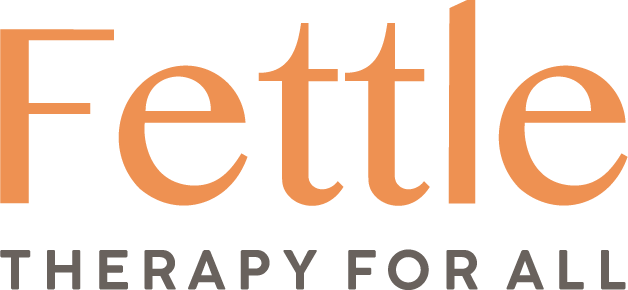
Therapy for Anxiety
How common is anxiety in Ireland? Research shows that it is very common, and yet most anxiety sufferers feel isolated.
But you are not alone.
What is Anxiety in Ireland?
Anxiety in Ireland is a natural response to stress that can be beneficial in certain circumstances. It can warn us about impending threats and assist us in planning and paying attention to our surroundings. Anxiety disorders are marked by excessive fear instead of normal emotions of apprehension or anxiety. Anxiety disorders are the most common mental illnesses, afflicting about one-third of all adults at some point in their lives. On the other hand, anxiety disorders are curable, and there are a variety of effective treatments available. The majority of persons who receive treatment are able to live regular, productive lives.
If you have anxiety, to sleep well can be one of the biggest challenges. Experiencing anxiety to work is another common hurdle. Anxiety in relationships is also increasing, especially during a global pandemic. But, what qualifies you to have anxiety, or be diagnosed with it?
Anxiety Symptoms
If you’re wondering what anxiety feels like, you aren’t alone. Considering how different people feel anxiety, 100s of symptoms could be listed. Here are some physical symptoms of anxiety: loss of appetite, weight loss, upset stomach, nausea, diarrhea, heart palpitations, increased blood pressure, shortness of breath, jaw pain, night sweats, brain fog, lump in throat, rash, racing thoughts, and headaches.
Anxiety Causes
Possible causes of anxiety: work issues, anxiety in relationships, sleep deprivation, constant worry, genetics, compounded stress, and trauma. A common question is “how do I get tested for anxiety?” Getting an anxiety test usually involves visiting your primary care physician or a mental health therapist.
Anxiety Treatment
Anxiety and depression medications are certainly an option; however, it’s possible that CBT therapy can cure anxiety. Using medicines for anxiety can also be combined with CBT counseling to be even more effective at battling general anxiety disorders.
Types of Therapy for Anxiety
All therapeutic interventions aim to assist people with anxiety in identifying the root of their concern, understanding its triggers, and learning new methods to cope with them. Some types of treatment teach you how to replace negative ideas and habits with positive ones.
Cognitive Behavioural Therapy
In treating anxiety, cognitive behavioural therapy (CBT) is quite successful. Your psychologist will assist you in learning new strategies to recognise and manage the elements that contribute to your anxiety during CBT treatment.
CBT is a treatment that combines cognitive and behavioural therapy. You'll study the fundamentals of cognitive restructuring in cognitive therapy, which entails identifying the thoughts that cause worry. You can help them feel better by teaching them how to replace negative thoughts with more realistic ones. Meanwhile, you'll discover CBT strategies to lessen troublesome behaviours associated with anxiety-related diseases through behaviour therapy. Your psychologist will urge you to participate in anxiety-provoking tasks during behaviour therapy, and you will learn that the consequences you fear are unlikely.
Dialectical Behavioural Therapy
Dialectical Behavioural Therapy, a kind of cognitive behavioural therapy, was first used to treat borderline personality disorder (BPD). DBT is now used to treat anxiety disorders, depressive disorders, and bipolar disorder, among other mental illnesses.
You'll work on accepting your anxiety while working on changing your beliefs and behaviours during DBT. Mindfulness, distress tolerance, interpersonal effectiveness, and emotional regulation are four powerful abilities that DBT teaches.
Acceptance and Commitment Therapy
Anxiety and related diseases can benefit from acceptance and commitment therapy (ACT). During ACT, you'll discover various techniques for identifying and acting on your life values.
Researchers discovered that ACT treatment delivered via the internet is effective for various anxiety conditions. In another study, a combination of commitment therapy and cognitive therapy helped treat anxiety and depression patients in clinical practice.
Therapy for Anxiety: When To Get Help
It might be challenging to decide whether or not to seek professional help, especially if you're already anxious and overloaded. While recognising and managing anxiety disorders is critical to addressing symptoms, seeking professional care for those who do not have a diagnosable mental health disease can be beneficial.
Reaching out for help isn't a sign of weakness; it's a crucial step on the road to recovery. Here are eight symptoms that it's time to get anxiety treatment from a professional on Fettle:
You're constantly feeling stressed out.
Your physical health is deteriorating.
You're having trouble forming or maintaining relationships.
It seems impossible to keep your emotions under check.
Your job or academic performance has suffered a setback.
You resort to harmful coping techniques to deal with your problems.
You've been through a traumatic event.
You don't like the things you used to enjoy.
Anxiety Prevention
Anxiety can truly interfere with your functioning at your best and completing everyday activities. If it was possible to prevent anxiety would you be interested in learning how to do so?
Anxiety prevention is possible and works differently for each individual seeing triggers differ greatly.
However here are some helpful ways to consider when working to prevent anxiety.
1. Quality Rest - getting adequate rest on a daily basis lessens how easily triggered you are to become anxious.
2. Maintain a healthy diet - Ensuring that your body is nutrient-packed will keep your anxiety levels minimize as you are better equipped to deal with stress.
3. Journaling - this helps you to keep track of the varying aspects of your anxiety. Thus, helping you to avoid bad habits that possibly act as triggers.
4. Exercise - being active keeps the mind healthy and thus better able to deal with anxieties and even the extent of possible onsets.
5. Time alone - spending time with yourself is very therapeutic and is a great way to keep anxieties away and even lessen them.
6. Don’t overdo it - when you learn to pace yourself it ensures you don’t take on more than you can truly manage.
Learn more about Therapy for Anxiety by reading our blog post, “Is CBT the best therapy for Anxiety?”
Ready To Book?
Book Your Free 20-Minute Consultation
Choose a time that works best for you
Loading calendar...
Book a Therapy Session Now
Choose Your Therapy Plan
Start with a free consultation, book individual sessions, or save with our 3-session bundle
Let's Talk - Find Your Path
20 minute discovery call
No cost, no obligation
- Discover what's available to you
- Explore therapy options together
- Find the right therapist fit
- Ask any questions you have
- No pressure to commit
Pay As You Go
Standard 50-minute session
Per session
- Book sessions at your own pace
- No commitment required
- Perfect for flexible schedules
- Full 50-minute sessions
- Access to all qualified therapists
3-Session Bundle
Your starter journey to lasting change
- Book anytime that suits your schedule
- Weekend sessions available
- Out-of-office hours appointments
This bundle offers the perfect balance of flexibility and commitment — giving you the freedom to schedule around your life while making a meaningful investment in your mental health journey.
Start Your JourneyWhy Long-Term Therapy Creates Lasting Change
Research consistently shows that while short-term therapy provides quick relief, long-term therapy delivers deeper, more sustainable transformation that continues to benefit you for years after treatment ends.
The Long-Term Advantage
While short-term therapies provide benefits more quickly, research from the Helsinki Psychotherapy Study shows that long-term therapy becomes more effective over time, with superior outcomes appearing after the first year and continuing to grow throughout the follow-up period.
Long-term therapy provides additional benefits for psychosocial functioning and quality of life that emerge later in treatment and persist for years, including improvements in sense of coherence, perceived competence, and dispositional optimism.
The gains from therapy are markedly stable and endure several years after treatment ends, with long-term therapy showing particular benefits for improving perceived social support - a crucial factor for psychological well-being.
The Bottom Line
Committing to long-term therapy (6+ sessions) gives you the time and support needed to create deep, lasting transformation that continues to benefit you long after your sessions end.
Frequently Asked Questions
How do I stop my anxiety?
The absolute best way to begin your journey of reducing anxiety is to see your doctor or a therapist. How to deal with anxiety isn’t something that can be accomplished overnight.
Can you have anxiety and depression?
Yes. About 60% of those diagnosed with one are diagnosed with the other. The symptoms for both are similar, one condition can fuel the other, and the same treatment options have been successful for both.
What are anxiety attack symptoms?
An anxiety attack feels different for each individual, but it is usually their specific anxiety symptoms coming at them instantly, at full force, as a result of a situation or occurrence, reaching the edge of built up stress, or completely random and not at all provoked. Some describe anxiety attack symptoms of tightness in chest, shortness of breath, sweating, or feeling like the world is caving in on them.
What are the different anxiety types?
There is a diagnosis for generalised anxiety disorder, but some severe anxiety symptoms lead to other diagnoses such as social anxiety, obsessive-compulsive disorder (OCD), panic disorder, post-traumatic stress disorder (PTSD), and phobias. There is even a diagnosis for high functioning anxiety.
What helps anxiety?
Aside from pharmaceuticals and anxiety counselling, there are anxiety natural remedies such as CBD, magnesium, essential oils, and other anxiety supplements. Anxiety breathing techniques, reciting affirmations for anxiety, and various forms of meditation for anxiety, like using anxiety crystals, may also provide relief from anxiety. Others prefer to use anxiety fidget toys, wearing a spinning anxiety ring, or even wearing a bracelet for anxiety.




